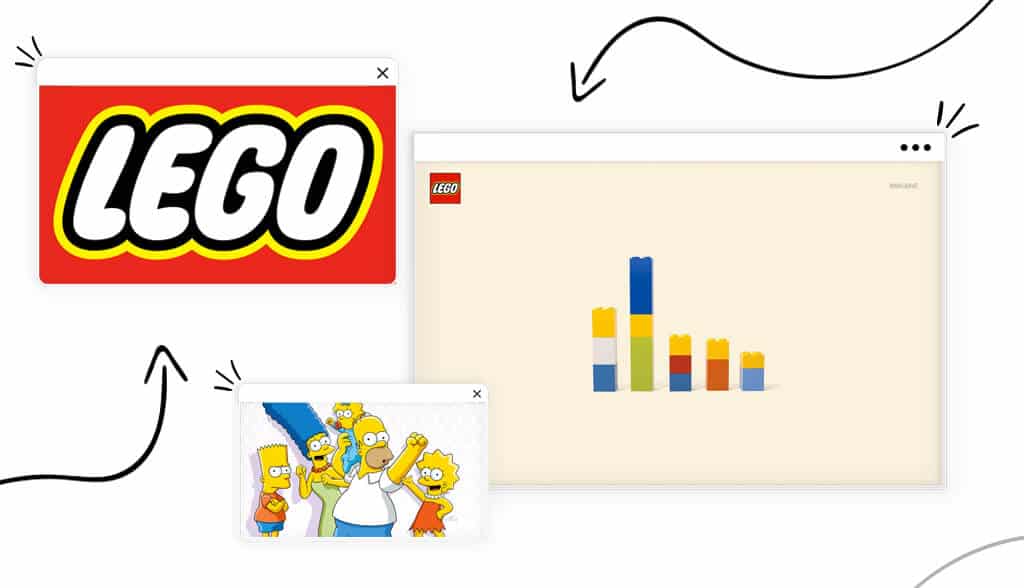
When there’s a pop culture moment, social media is all over it (oh, I’m totally guilty). You remember Julia Fox’s “uncaaaah jams” moment? Bernie Sander’s mittens? Bennifer 2.0? (Oh, I’m just getting started).
These events cause a stir online. So, as a business, you can take advantage of these cultural moments and harness the power of pop culture. I’m not saying every post has to reference a pop culture event, but sprinkling it into your social media can add a little spice to your page.
In this post, I’m going to talk about why you should include pop culture references in your social media posts and examples of businesses that did it right.
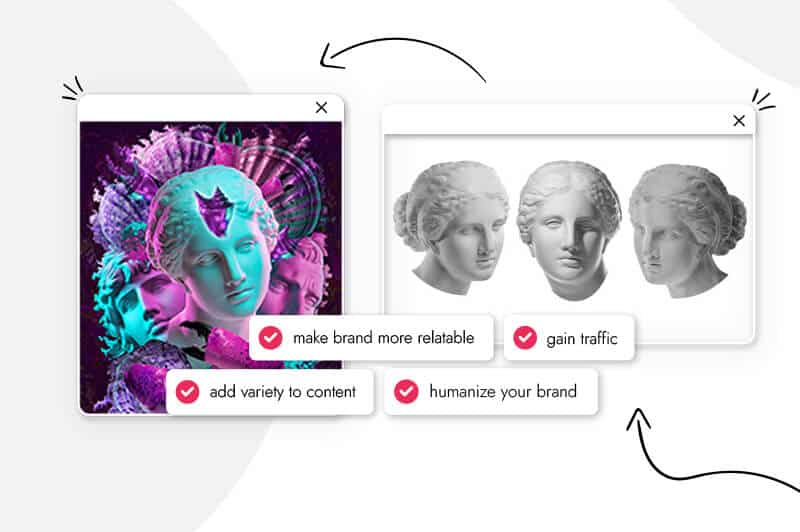
Pop culture is popular societal activities, like fashion, celebrities, music, etc. It’s the food we eat, the shows we watch, and the clothes we wear. And social media influences how we engage with pop culture.
Now, does this mean every post you create has to be a pop culture reference? Of course, not. Pop culture references also aren’t a must for your social media strategy.
For example, your customers may not be interested in pop culture, or your product/service doesn’t suit pop culture references. So, if you don’t feel that pop culture references would bring value to your business, then don’t use them in your social media posts.
To help you understand why adding pop culture references may be a good move for your social media, keep reading.
Using pop culture references in your social media depends on your customers, aka. target audience. If your target audience is Millennials and Gen Z, then pop culture references may bring value to your social media.
Pop culture posts resonate with everyone, and you can choose the right topic to connect with your audience. However, if your target audience, for example, is 50+, don’t waste your time posting Selling Sunset memes. Instead, I would suggest a George Clooney meme (you know, aim for those nostalgic moments).
If you’re reading this and are thinking, “wait, who’s my target audience?” stop right there. Before doing anything, read this post to help you find your audience.
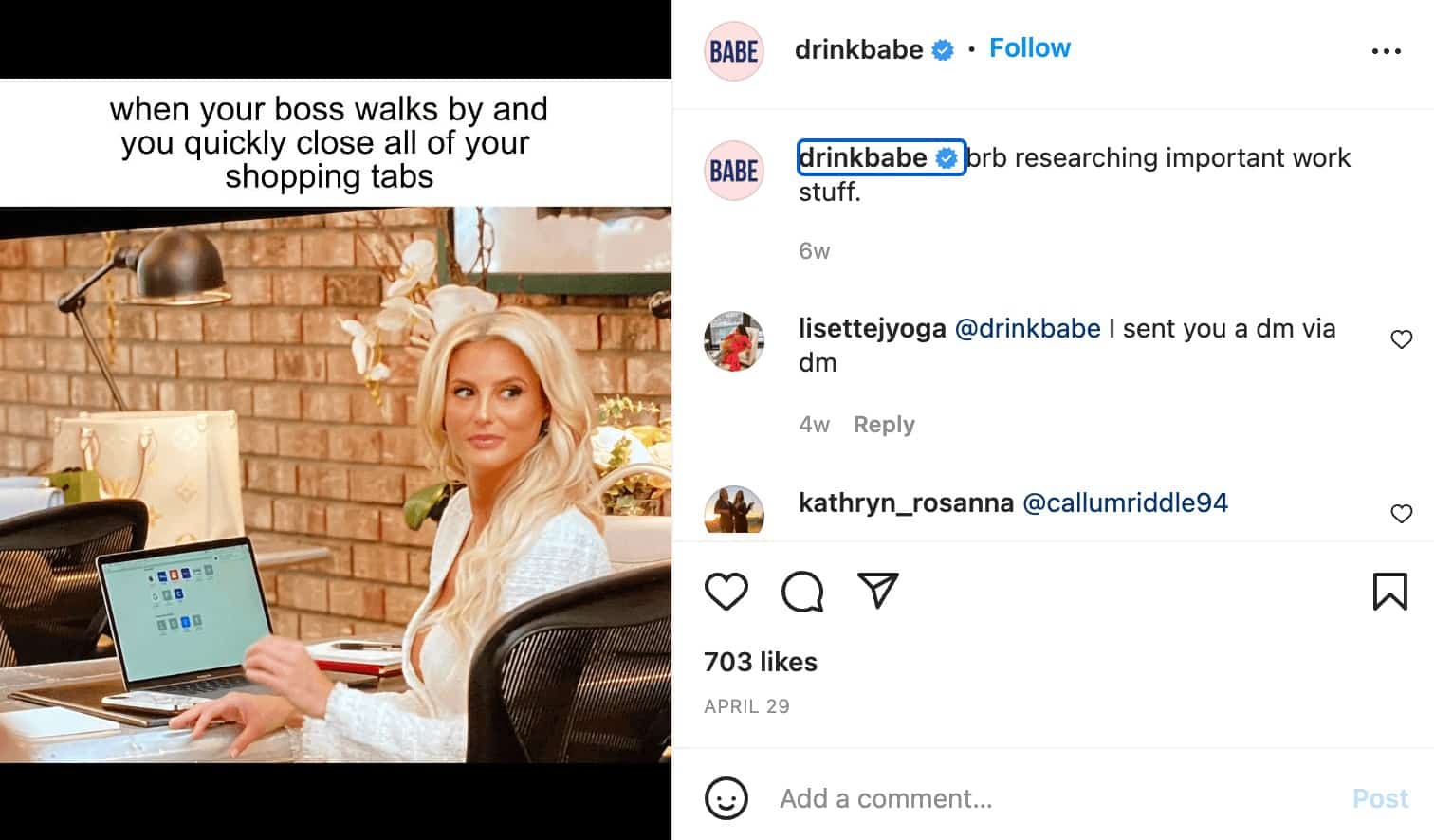
Drinkbabe sells wine, and most of their posts are based on their products or wine culture.
However, this post has nothing to do with their business. Drinkbabe used data analytics to learn what its customer’s interests and hobbies are. With that information, they create posts that show relatability.
Plus, this meme helps expand their audience as people will tag their friends and engage in the comment section.
Takeaway: Not every pop culture reference needs to relate to your business. Instead, use data analytics to learn more about your customer. With that information, choose pop culture moments that connect with them.
As a small business, you’re always looking for more ways to gain visitors. Well, adding pop culture references will certainly do the trick.
By creating pop culture-based posts, you can build a relationship with your current customers and expand your audience.
Let’s check out this post below.
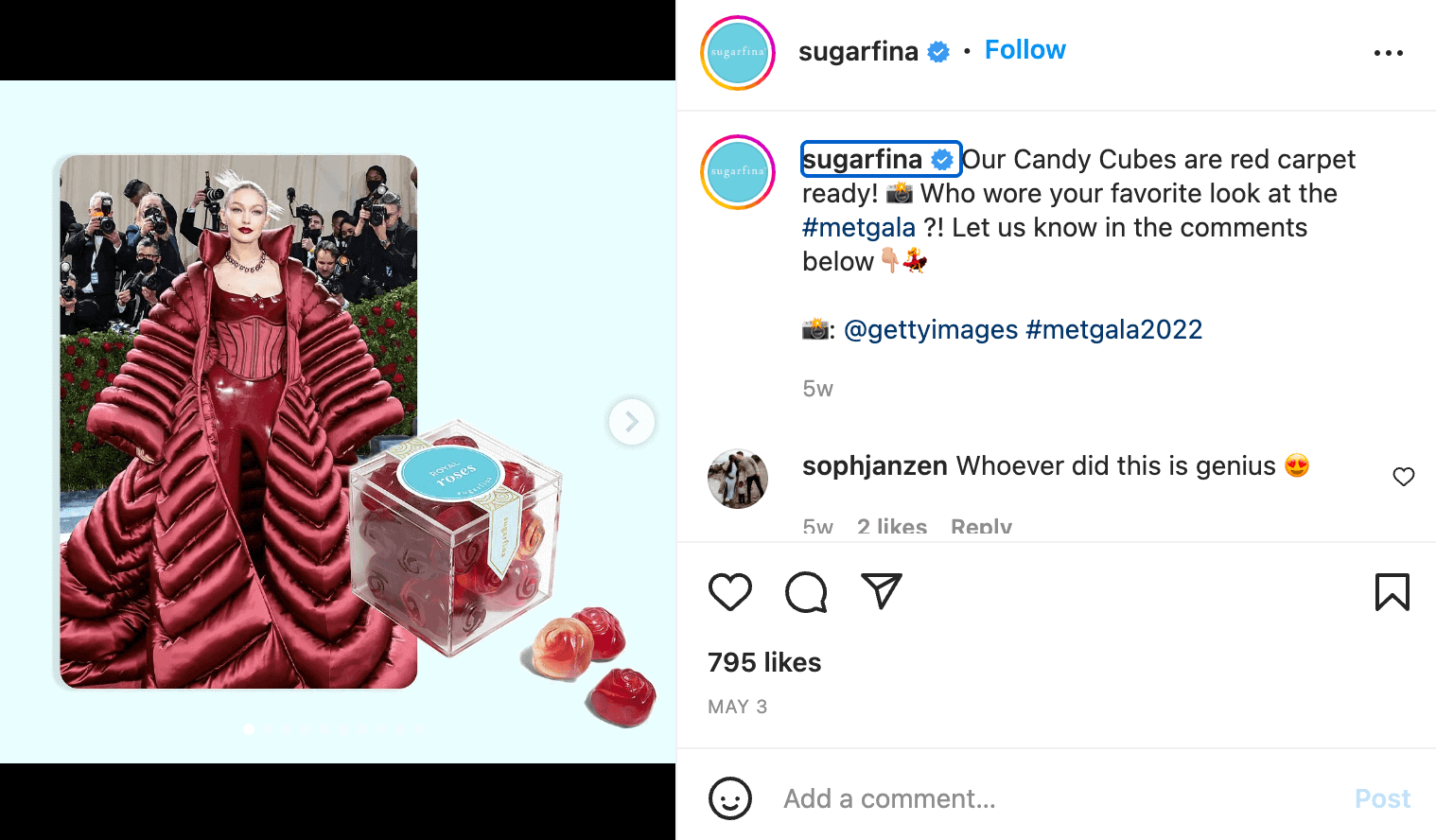
I love how Sugarfina used pop culture to showcase its product. Not only do they show people what they offer customers, but they also connect to potential customers through a trending pop culture moment.
Comparing your product to celebrity outfits from the Met Gala will certainly get a conversation going – and that’s exactly what you want. People comment, tag their friends, and share these types of posts on their Instagram stories.
Takeaway: By using pop culture references, you can gain eyes on your business and expand your audience. While you can highlight a pain point using pop culture references, you can also showcase your products.
In the eyes of customers, your business is just that – a business. But pop culture references can help humanize your business, making it look more relatable and deep.
By using pop culture references, you’re showing your audience that your business has a personality, and that helps increase engagement and likability.
Tracey Mallet is a pilates and barre fitness instructor with her tough homework-outs. And while she’s known for her fitness routines, she also has built a strong relationship with her viewers. So how did she do it?
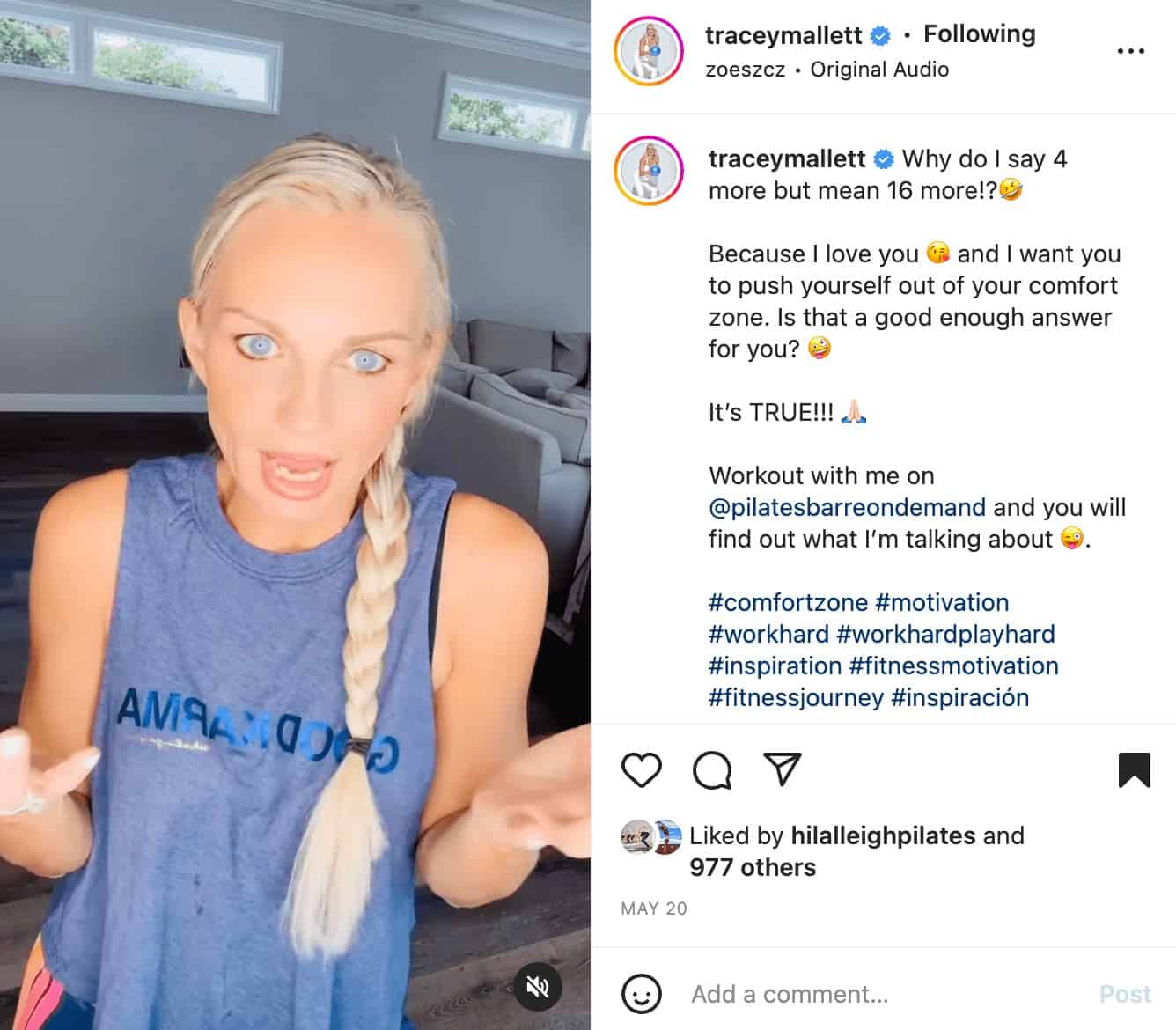
While you can use memes to create pop culture posts, you can also create Instagram Reels and TikTok videos with trending audio or act out a pop culture moment.
Tracey uses culturally relevant and trending audio on top of her Reels to connect with her audience and help humanize her business. See, she’s not just a fitness instructor who wants to see you sweat (though, I think she likes that part), but she’s also charming and funny.
Takeaway: Memes are great for pop culture references, but you can also use Instagram Reels and TikTok to connect with your audience.
Running a small business isn’t easy, especially when you’re wearing all the hats. On top of filling sales and creating your product, you also need to be the social media manager (honestly, you deserve a medal).
You don’t always need to come up with brand new content for your social media. Instead, you can use pop culture to help create some diversity on your social media (and give your head a break).
Thinkific is an all-in-one platform that helps business owners to create, market, and sell online courses. Their social media profile is professional, focusing on providing educational and actionable content for their audience. But they also throw in a pop culture post every now and then.

With pop culture posts, you can create them to highlight pain points for your customers.
For example, through the meme above, they remind their audience of how hard it is to be an entrepreneur. Naturally, Thinkific helps alleviate this pain point with their product.
Takeaway: Not everything you post has to be groundbreaking. If you’re struggling to come up with new content, you can use pop culture references to create Reels or memes. Tools like Canva, and Adobe Express can help you create memes.
If you feel pop culture references will help your business connect to its audience, why not give it a try? As a business owner, you get to decide whether adding pop culture references to your social media would benefit your business.
If you’re unsure of the answer, you can always create a few posts and gauge your audience’s reaction. Then, you’ll be able to see if using pop culture adds value to your business or not.
This portion of our website is for informational or educational purposes only. Tailor Brands is not a law firm, and the information on this website does not constitute legal advice. All statements, opinions, recommendations, and conclusions are solely the expression of the author and provided on an as-is basis. Accordingly, Tailor Brands is not responsible for the information and/or its accuracy or completeness. It also does not indicate any affiliation between Tailor Brands and any other brands, services or logos on this page.
Products
Resources
©2025 Copyright Tailor Brands